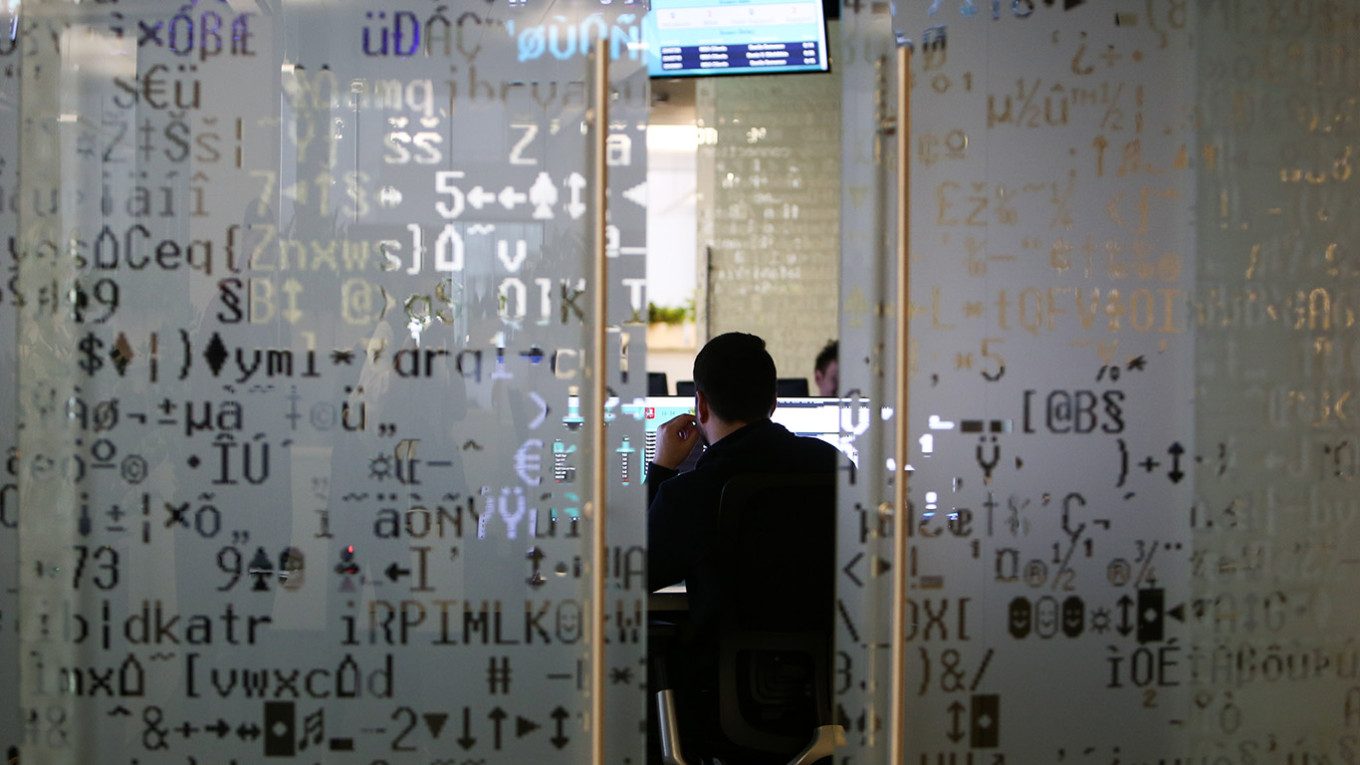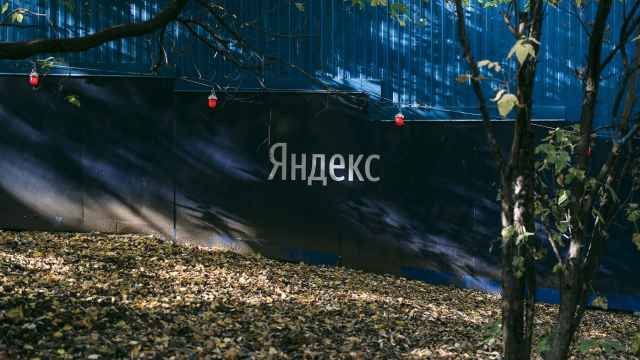Russia's IT industry is increasingly concerned that renewed competition from foreign firms could deal a serious blow to local tech players as discussions intensify around the possible return of Western companies that left following the 2022 invasion of Ukraine.
Meanwhile, the foreign companies that remained in Russia — albeit with significantly scaled-back operations — have recently reported their first profits since the invasion.
Return of Western companies discussed
Since the first contacts between the U.S. administration and Russia earlier this year, the possibility of foreign — mainly Western — companies that left Russia in 2022 returning has surfaced. Alexei Yakovlev, director of the Finance Ministry's financial policy department, floated this possibility again in early April.
"Obviously, those who are willing to return should be provided with such an opportunity," he was quoted as saying by the state-run TASS news agency. "Market conditions with additional considerations applied given the sectors of their activities, are basic."
Earlier, Deputy Finance Minister Ivan Chebeskov said his ministry was drawing up a list of requirements for the return of foreign companies to the country as requested by President Vladimir Putin.
Meanwhile, although relations between Russia and the U.S. are considered to be gradually "warming," no real steps have been taken to lift U.S. sanctions on Russia. Senior Russian officials have repeatedly said that the lifting of sanctions would be the main condition for any return of foreign companies.
And although foreign companies that left Russia are reportedly considering their options for returning, very few are ready to make concrete steps. Independent news site The Bell recently asked 60 Western companies whether they plan to resume business in Russia. They received responses from only 21 companies, and not a single one clearly or directly stated an intention to return.
Russian IT companies fearful
Despite the uncertainty around a possible return of Western firms, Russian IT companies are concerned that increased foreign competition might make their already precarious situation yet more difficult.
Three years after the massive exodus of global tech firms from Russia, it's already clear that the Russian IT sector has been unable to capitalize on this window of opportunity. Even in a situation when competition was insignificant and the government extended some privileges to the tech industry, local IT firms were able to show only modest growth.
Now that this government support is ending, the first signs of problems are already emerging. Starting from late 2024, major Russian IT companies have been laying off personnel. Some large companies, including Sber, VK and MTS, have reportedly laid off entire development teams. The market has begun to shrink, and new areas that have not yet proved their economic efficiency are apparently few.
In an article published by the RBC business daily, Valentin Makarov, president of RUSSOFT, an association of Russian IT firms, claimed that foreign tech firms are eager to return to Russia, as their absence in the local market results in substantial unrealized profits. According to Makarov, some IT firms might return to Russia indirectly, operating through intermediaries, which will already create problems for Russian competitors.
"Most Western IT companies actually didn’t want to leave the Russian market in 2022," he wrote. "They understood that, given their extensive experience and well-established operations in Russia, doing so would be unprofitable for their business. Therefore this decision was driven not by their own desire, but by the political situation along with primary and secondary sanctions against Russia imposed by Western countries, primarily the U.S. government."
According to Makarov, although a return to the pre-2022 status quo when foreign IT firms had practically unlimited access to the Russian market is unlikely, local IT firms still need protection from returning Western competitors.
"Any changes could significantly undermine the progress made over the past three years — something we cannot allow, or we risk losing the results already achieved," he noted.
Risks of foreign firms' re-entry
According to Makarov, while Russia’s drive toward import substitution in the IT sector has made some progress, the transition remains uneven. In certain IT segments, a clear technological lag persists — a gap that, he notes, creates conditions for a possible return of foreign vendors. However, any such return must be strictly aligned with national interests and paired with accelerated development of domestic alternatives.
"The key now is not just replacing imports, but supporting the export potential of Russian IT companies," Makarov said. He points to successful cases of technological sovereignty that are already attracting attention from friendly countries — eager to adopt Russian solutions or learn from its approach to import independence.
Still, the potential re-entry of foreign software providers poses substantial risks for the local IT sector. Makarov warned that their return could trigger renewed anti-Russian sanctions and raise security concerns, particularly the danger of cyberattacks enabled by foreign software used in critical infrastructure and information systems.
"Protecting technological sovereignty is essential if we are to safeguard the gains made by the Russian IT industry," he said.
Small profits for those who stayed
At the same time, foreign tech companies that have stayed in Russia are showing profits for the first time since 2022.
In a surprising turn, Sony posted a net profit of 111.7 million rubles (about $1.3 million) from its operations in Russia in 2024, marking its first profitable year in the country since 2021. The financial report comes from the company’s main Russian subdivision, which had previously closed both 2022 and 2023 in the red.
Despite the return to profitability, Sony's revenue in Russia plunged by a staggering 75.9%, dropping to just 202.5 million rubles ($2.4 million), according to figures from the Federal Tax Service. The steep decline follows the company’s March 2022 decision to halt supplies of gaming consoles, accessories and games to Russia, along with suspending operations of the PlayStation Store in the country.
By 2024, Sony had sold off its remaining inventory in Russia. However, the company still generates some income from warranty services and administrative support. Notably, the company said that it has no intention of closing down its legal entity in Russia. Meanwhile, a separate Russian subsidiary owned by Sony Mobile Communications has been in liquidation since October 2023.
Meanwhile, the Russian arm of U.S. tech giant Google reported a net profit for the first time since 2020, with earnings reaching nearly 900 million rubles ($10.7 million), based on filings with the Federal Tax Service. This marks a significant turnaround from 2023, when the company recorded a loss of 3.12 billion rubles ($37.1 million). The last time Google’s Russian unit was in the black was in 2020, when it posted a profit of 1.73 billion rubles ($20.6 million).
No revenue data have been made public for either 2023 or 2024, but the subsidiary was officially declared bankrupt and has been in the process of liquidating assets since October 2023.
As part of the liquidation proceedings, Valery Talyarovsky, the court-appointed manager of Google in Russia, has filed numerous lawsuits against advertising companies. Since early 2024, he has initiated at least 13 legal actions in the Moscow arbitration court, seeking claims that total approximately 10 billion rubles ($119 million). Several of these lawsuits have already been ruled in Google’s favor.
This article first appeared in bne IntelliNews.
A Message from The Moscow Times:
Dear readers,
We are facing unprecedented challenges. Russia's Prosecutor General's Office has designated The Moscow Times as an "undesirable" organization, criminalizing our work and putting our staff at risk of prosecution. This follows our earlier unjust labeling as a "foreign agent."
These actions are direct attempts to silence independent journalism in Russia. The authorities claim our work "discredits the decisions of the Russian leadership." We see things differently: we strive to provide accurate, unbiased reporting on Russia.
We, the journalists of The Moscow Times, refuse to be silenced. But to continue our work, we need your help.
Your support, no matter how small, makes a world of difference. If you can, please support us monthly starting from just $2. It's quick to set up, and every contribution makes a significant impact.
By supporting The Moscow Times, you're defending open, independent journalism in the face of repression. Thank you for standing with us.
Remind me later.






